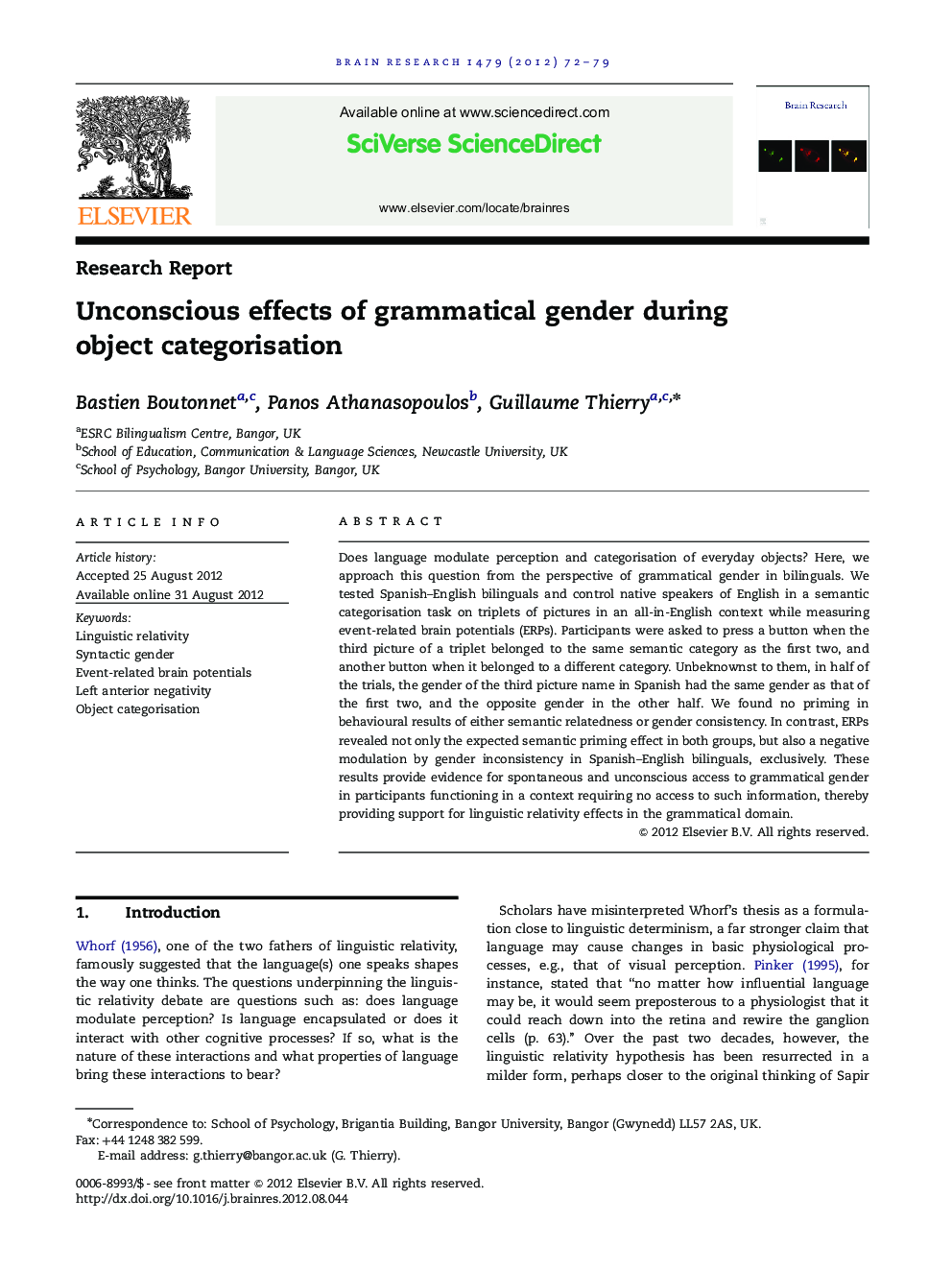| کد مقاله | کد نشریه | سال انتشار | مقاله انگلیسی | نسخه تمام متن |
|---|---|---|---|---|
| 4325044 | 1613960 | 2012 | 8 صفحه PDF | دانلود رایگان |

Does language modulate perception and categorisation of everyday objects? Here, we approach this question from the perspective of grammatical gender in bilinguals. We tested Spanish–English bilinguals and control native speakers of English in a semantic categorisation task on triplets of pictures in an all-in-English context while measuring event-related brain potentials (ERPs). Participants were asked to press a button when the third picture of a triplet belonged to the same semantic category as the first two, and another button when it belonged to a different category. Unbeknownst to them, in half of the trials, the gender of the third picture name in Spanish had the same gender as that of the first two, and the opposite gender in the other half. We found no priming in behavioural results of either semantic relatedness or gender consistency. In contrast, ERPs revealed not only the expected semantic priming effect in both groups, but also a negative modulation by gender inconsistency in Spanish–English bilinguals, exclusively. These results provide evidence for spontaneous and unconscious access to grammatical gender in participants functioning in a context requiring no access to such information, thereby providing support for linguistic relativity effects in the grammatical domain.
► Syntactic gender is automatically retrieved during object recognition.
► Linguistic relativity effects extend to syntactic gender.
► Electrophysiological effect of grammatical gender during non-verbal categorisation.
Journal: Brain Research - Volume 1479, 15 October 2012, Pages 72–79